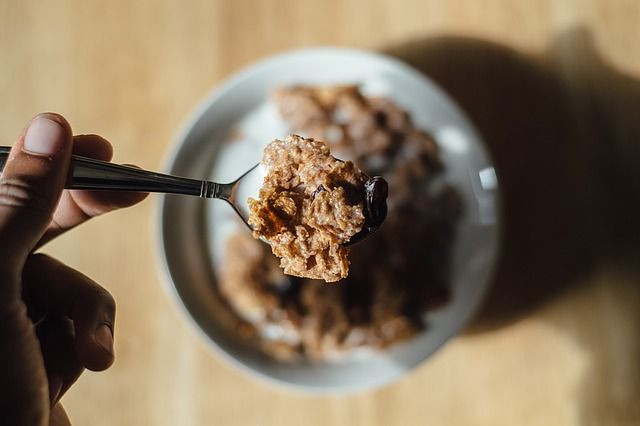The Body Clock: Eating Schedule Is Equally Important As Sleep Cycle For Maintaining Rhythm

Planning out healthy meals throughout the day is a luxury some of us cannot afford. More and more people are skipping meals, eating outside the home, on the go, later in the day, and more irregularly due to more shift work and social jetlag — when someone has different sleeping patterns on weekends and weekdays. It would be nice to have a flexible meal schedule and healthy food on hand, but what’s more important in the long run: what we eat or when we eat it?
In two separate papers published in the Proceedings of the Nutrition Society, researchers from King’s College London, Newcastle University, University of Surrey, and Nestlé Research Centre examine how our metabolic processes can alter or influence our internal clock when the timing, size, and quality of our meals start to go haywire.
"Whilst we have a much better understanding today of what we should be eating, we are still left with the question as to which meal should provide us with the most energy,” said Dr. Gerda Pot, Visiting Lecturer in the Diabetes and Nutritional Sciences Division at King's College London, in a statement.
Shift Work
Pot and her colleagues combined data from a number of dietary studies with global differences in eating habits. Studies continually show how shift workers face an increased risk for Type 2 diabetes, heart disease, and cancer. Alternating between irregular and around-the-clock shifts cause a disruption in our circadian rhythm, and appetite, digestion, and metabolic processes are highly dependent on its 24-hour clock.
Social Jetlag
The researchers estimate that social jetlag affects more than 80 percent of people in central Europe, especially those living in urban areas. By staying up late and sleeping in on weekends, then going to bed early to wake up early during the week, we set up a mismatch between our circadian rhythm and our social sleep schedule. Over time, this imbalance causes metabolic changes that lead to obesity, heart disease, and cancer.
When We Should Eat
Different eating patterns from around the world depend on personal preference and local culture. For example, the French place their importance on pleasurable and social eating, which is why many people in France and the Mediterranean region consider lunch the most important meal of the day. Food choices in central England, on the other hand, reflect individual preferences and convenience. This often translates into skipping meals, calorie-dense snack foods, and a higher consumption of ready-made and fast-food meals.
Currently in both the United States and the United Kingdom, energy intake from food consumption tends to increase throughout the day. Breakfast provides the lowest amount of energy while dinner provides the highest. This same shift toward smaller breakfasts and bigger dinners has started in France in recent years as work patterns have changed. So are the people of France at risk for an obesity epidemic similar to the one seen in the U.S.?
Is Breakfast King?
In a recently concluded study, researchers from Umea University asked 889 16-year-old students about their breakfast eating habits, propensity to skip meals, and how important sweetness was to their enjoyment of food. Nine percent of the students practiced poor breakfast habits. When the research team caught back up with the participants at the age of 43, they found that people who skipped breakfast as kids were 68 percent more likely to have metabolic syndrome.
"There seems to be some truth in the saying 'Eat breakfast like a king, lunch like a prince, and dinner like a pauper,' however, this warrants further investigation,” Pot added. “Although the evidence suggests that eating more calories later in the evening is associated with obesity, we are still far from understanding whether our energy intake should be distributed equally across the day or whether breakfast should contribute the greatest proportion of energy, followed by lunch and dinner."
When We Should Work Out
Sleep and meals aren’t the only things whose timing influences our health — the time of the day we exercise also plays a role. Just like our dieting habits, when we work helps determine how effective exercise can be. However, there seems to be no clear winner between working out in the morning or at night. Both have their benefits: Working out in the evening is best for boosting muscle strength and size, while exercising in the morning helps with losing weight, improving sleeping, and reducing stress.
Source: Pot G, et al. Meal irregularity and cardio-metabolic consequences: results from observational and intervention studies. Proceedings of the Nutrition Society . 2016.



























